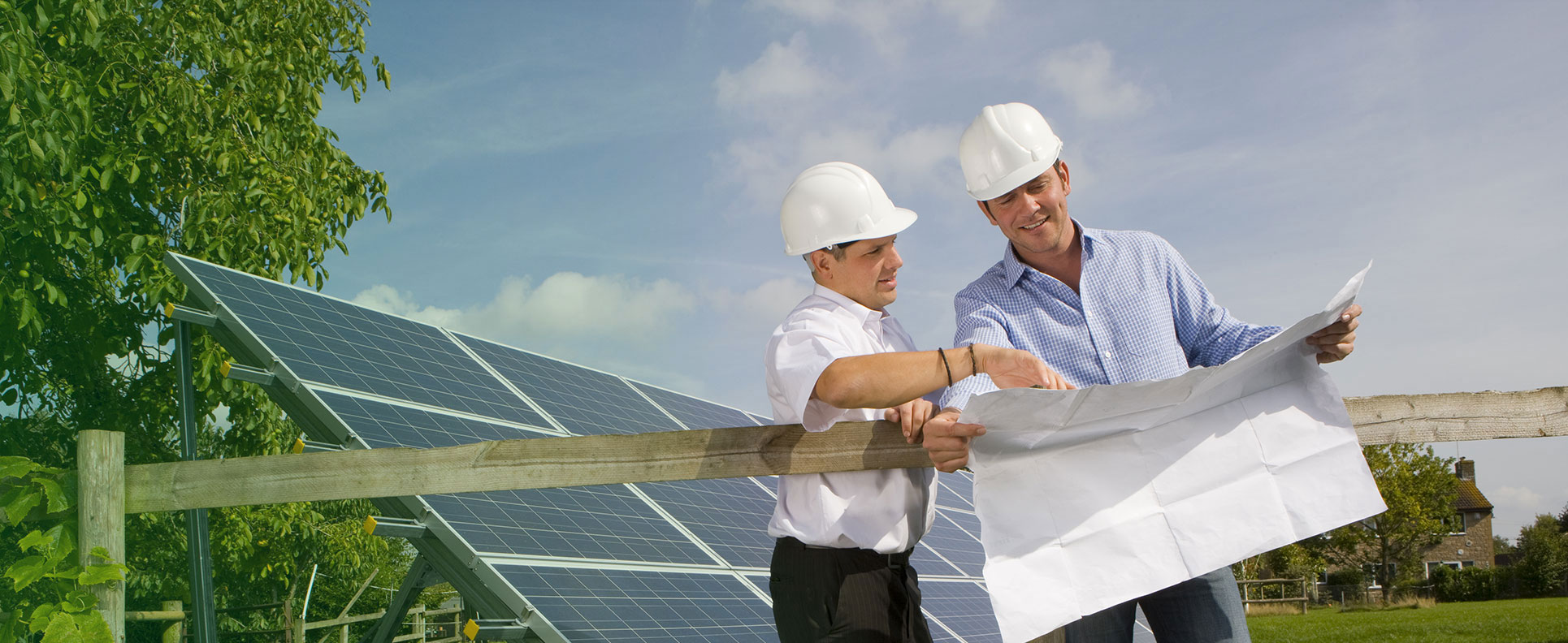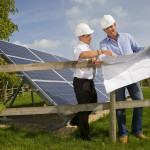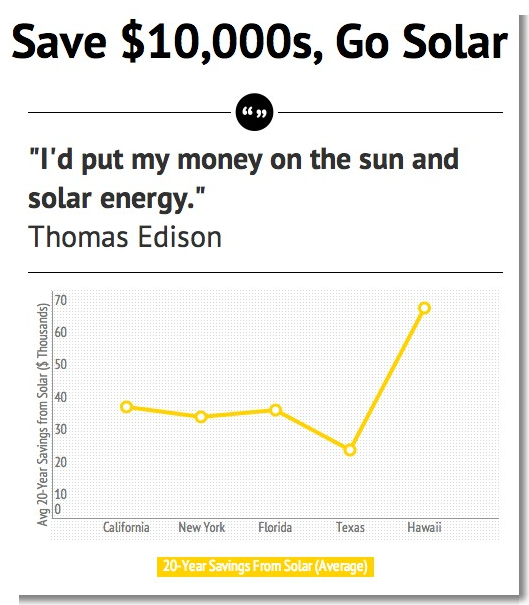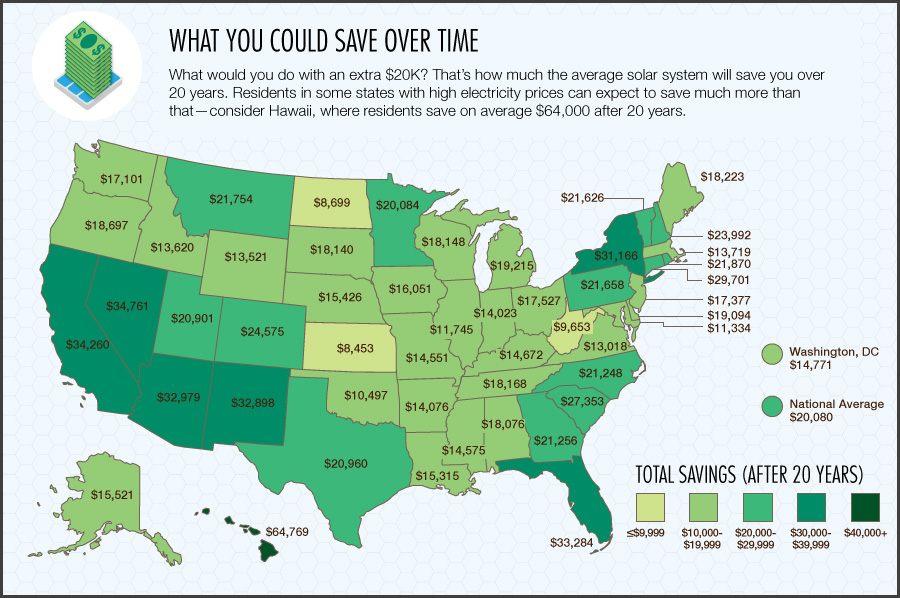Select the plus button to see the answers to the most frequently asked questions.
GENERAL QUESTIONS
Solar homes appreciated 17%, and sold 20% faster on average than the non-solar homes, according to a recent study by the (NREL) National Renewable Energy Laboratory.
Solar improvements add significant value to your property with no increase in property tax!
Solar Technologies offers the most comprehensive selection of financing options for a variety of needs. Whether you want a $0 down solar lease for as low as $85 per month, or are looking to finance your system with a payback in as little as five years. We offer the best terms on the market. Our knowledgeable solar consultants will prepare a free financial analysis to determine what works best for your situation.
Aside from the aesthetic differences in solar panels, quality makes a differenece. Solar Technologies offers the most efficient solar panels in the world, generating up to 50% more power than conventional panels, with less degradation from heat. This means more savings using less space at lower costs.
A: Based on manufacturers’ in-field experience and reliability testing, PV modules will probably last longer, and are more reliable than just about any other capital investment for your business. In 2003, BP Solar published the results of their analysis of warranty claims and reported that of more than two million modules in service over nearly ten years, approximately one-tenth of one percent were reported faulty, noting “this represents one module failure for every 4,200 module-years of operation.” Put another way, if your system has one thousand modules, you may experience the failure of ten modules in 40 years.
A: Unlike the other major use of silicon – computer chips – photovoltaic technology is not subject to Moore’s Law. Instead of rapid performance gains, PV technology has slowly improved over time and as such there are no reported major advances. There are some promising innovations being explored, but to our knowledge they are all in the research phase and have not been commercialized or offer improvements in cost-efficiency ($/KW generated) while greatly compromising energy density (KW generated/square foot), which makes them inapplicable for most dense, developed areas.
A: Unlike the early days of solar power when systems had to be sized for peak loads, a grid-connected PV system seamlessly switches to draw from the utility grid when needed. As such, Sunlight Electric uses an annual production target, averaging out sunnier days with cloudy days.
A: It depends. Roof-mounted tends to be less expensive as they require no support structures and are most often not visible to passersby. On the other hand, ground-mounted systems can usually be oriented and tilted to optimize production. Through understanding your business and your needs, Sunlight Electric will present a solution that optimizes for your business and your needs.
A: We frequently take into account future growth plans when designing your system. The choice of inverter can be influenced by near-term expectations about power usage and in some cases it may make sense to include excess capacity now and simply add more modules later. We’ll discuss this with you and explore a variety of options to meet your needs now and in the future.
A: Yes, it’s relatively commonplace for property owners to allow their tenants to make improvements in their facilities.
A: Solar PV systems are solid state technology, have no moving parts and require no maintenance beyond cleaning, which can typically be done with a garden hose. Most systems should be cleaned 2-4 times a year, concentrated in the drier seasons. Systems in agricultural areas will likely require monthly cleaning. (We have an automated washing solution – ask us about it.)
Inverters are also solid state and require little to no maintenance beyond regularly checking the cooling fan outlets and cleaning when necessary. Mounting hardware is either aluminum or stainless steel and is rust-proof.
A: A garden hose will typically do, though some customers prefer to use a high-pressure sprayer from the ground when the array is accessible.
A: All hardware is made for outdoor use and is made of either rust-proof stainless or galvanized steel or aluminum.
A: We always need an electrical permit from the city or county and some require a building permit as well. California Green Sky and our licensed installers will handle all of this, from applications to inspections.
Energy 101 – Solar PV Video





